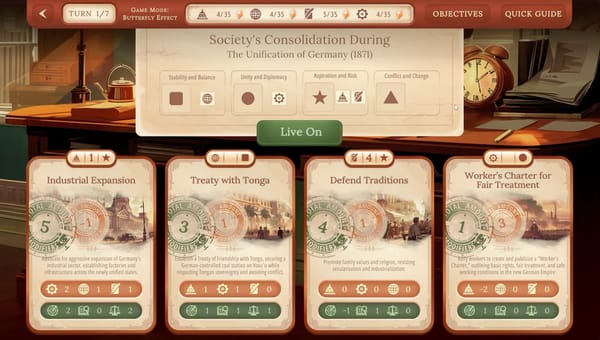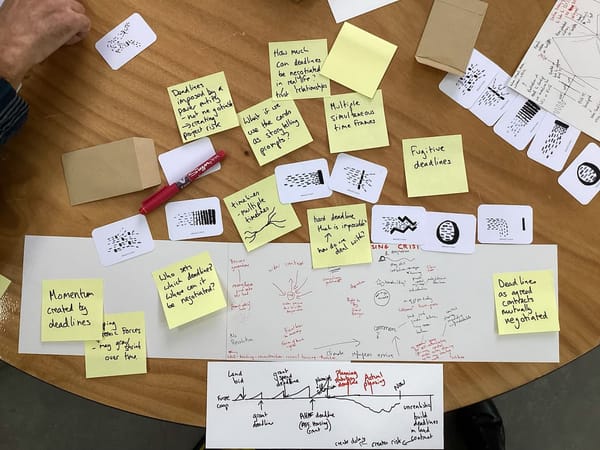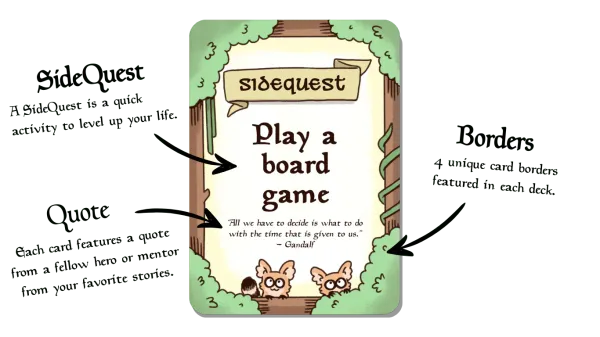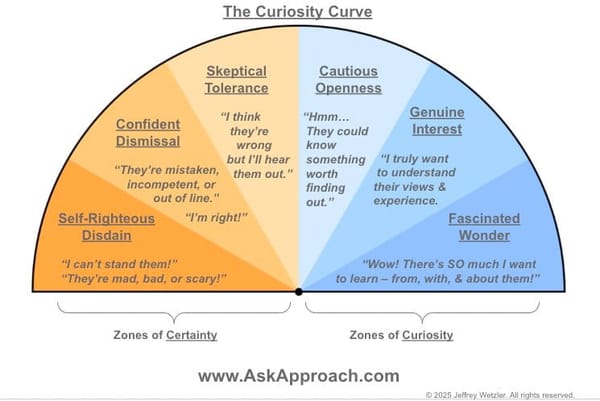№ 61 | “31 Days to a Better You,” Contra Chrome, Complexity, Managing Your Manager (Card Concept), and “Manna – Two Views of Humanity’s Future”
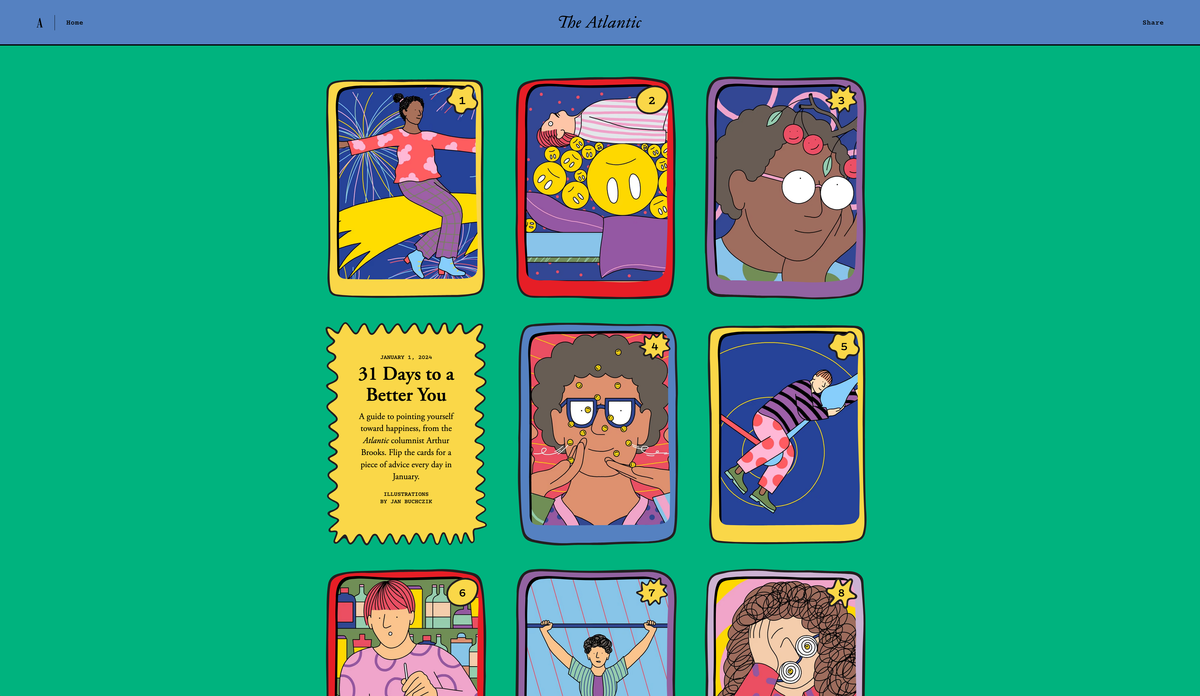
1/ A new name!
“Friday Finds” are now “Thinking Things” (The Mighty Minds Club Newsletter). Yes, more alliteration.
2/ A new frequency:
I’ll be publishing these every other week (rather than weekly).
3/ “Form of…” a newsletter!*
No more great curated content hidden behind a members-only paywall. What were previously posts on our community site are now are being published on a self-hosted Ghost instance. This means you can do all the usual friendly email newsletter things: Subscribe via email, get RSS updates, or share post links without problems. Content is FREE! [Sidenote: I plan to migrate the previous 60—60!!—issues over, but this may take some time!]
There’s more to follow, especially related to the more community-oriented parts of The Mighty Minds Club (events, meetups, creative challenges), but for now, enjoy your bi-weekly (bi-monthly?!) dose of playful things to think with!
Cheers!
Stephen
* Yes, a late 70s cartoon reference.
“31 Days to a Better You.”
Cards…? Sort of! 🤪
While the season of online advent calendars (where every day reveals a new post) may be over, this hasn’t stopped the The Atlantic magazine from doing something similar—post December. Throughout the month of January, Arthur Brooks’s “31 Days to a Better You” offers a new bit of advice, with one new tip posted each day.
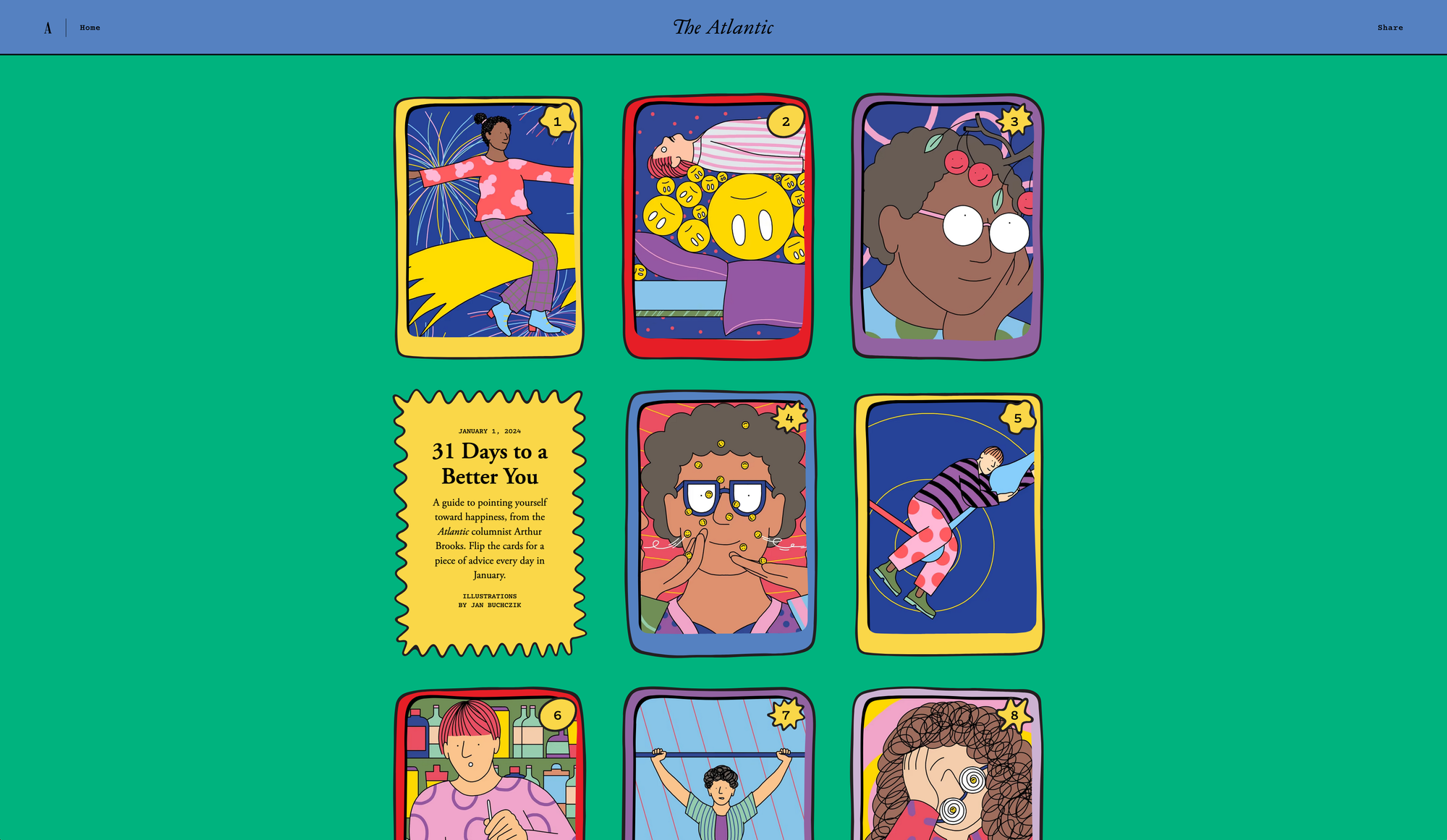
Contra Chrome
I still recall, way back in 2008, when Google commissioned cartoonist Scott McClould to create a comic book to explain their new Chrome browser. Well, Scott is back, 15 years later, with a sequel of sorts: “Contra Chrome – How Google's browser became a threat to privacy and democracy.” Definitely check out the entire comic. And if you haven't already, you might consider browser options other than Chrome.

I love this bit of fine print, at the very end:
As you might imagine, is not endorsed by or affiliated with Google in any way. Likewise, all these aforementioned surveillance products are absolutely not affiliated with let alone endorsed by the author.
Speaking of comics…
Complexity
This one image… says so much.

In one simple—but powerful—image, we see the mistake of trying to address complex challenges with linear thinking. Eek.
After seeing the cartoon associated with various posts on Systems Thinking and/or Complexity (mostly floating around LinkedIn), I was able to trace this back to the original source: “Complexity and policy making.” You're welcome. 😉
Managing Your Manager
This post on Managing Your Manager (free subscription needed?) is a solid read. But, it’s also ripe for being turned into a card game, or a card-based reflection exercise.

Take a glance at the article (so you have context!), and then I'll explain…
.
.
.
Okay, ready?
Imagine 6 cards. 1 card for each pairing.
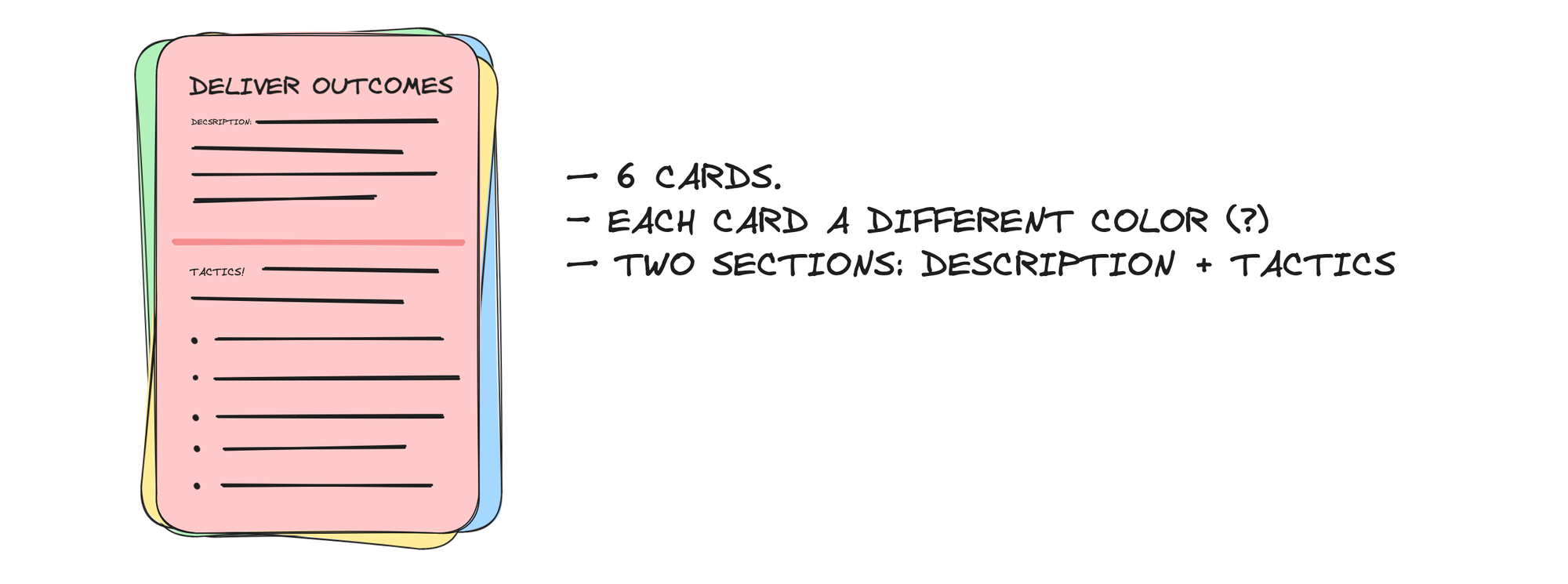
Each side of the card is one or the other end of the spectrum.

You reflect on each, and leave one side flipped up (optionally, you could remove a card if it’s not relevant).

Stagger these vertically in such a way that the description text is covered by the overlap of the card below it. Then, you’re left with personalized punchlist of tips!
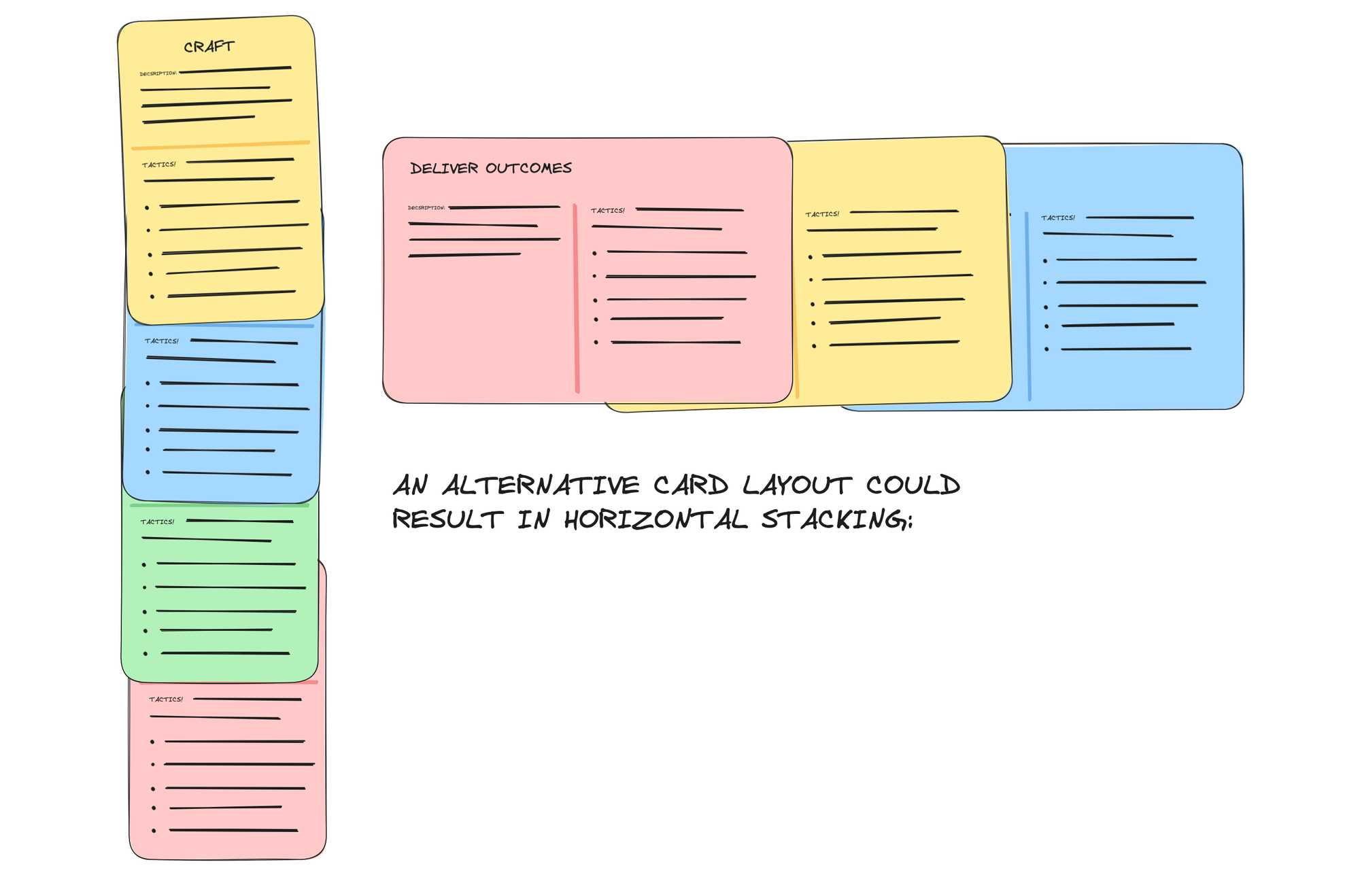
I'm certain there are other—better—ways to approach this. But, rather than just add a thinking-face emoji (🤔) and leave the suggestion hanging in the air, I thought it might be worthwhile to sketch at least one way to translate this from article to card deck toolkit. [Useful? Let me know if you’d like to see me illustrate more rough ideas like this.]
“Manna – Two Views of Humanity’s Future”
Here’s a short story (novella?) that I picked up via the SolarPunk / HopePunk hashtags I follow. The first half of the story is immensely depressing, if only because it it so very believable. But then, true to the story’s title, we get a glimpse of a more hopeful future. The writing is a bit heavy-handed, but that hasn’t stopped this from occupying space in my brain. Treat this as a bit of speculative fiction, to assess present issues, and it’s brilliant.
At the risk of a mild spoiler, I will share this description of one possible future that… seems like something worth trying to make reality:
What became clear after several weeks is that a big part of the Australia Project was living, and understanding what living meant to you. Perhaps for the first time, a huge group of people had the freedom to decide exactly how they wanted to live their lives, and then make it happen.
😍
I’ll get you started with the first paragraph:
Depending on how you want to think about it, it was funny or inevitable or symbolic that the robotic takeover did not start at MIT, NASA, Microsoft or Ford. It started at a Burger-G restaurant in Cary, NC on May 17. It seemed like such a simple thing at the time, but May 17 marked a pivotal moment in human history… [Continue Reading]


